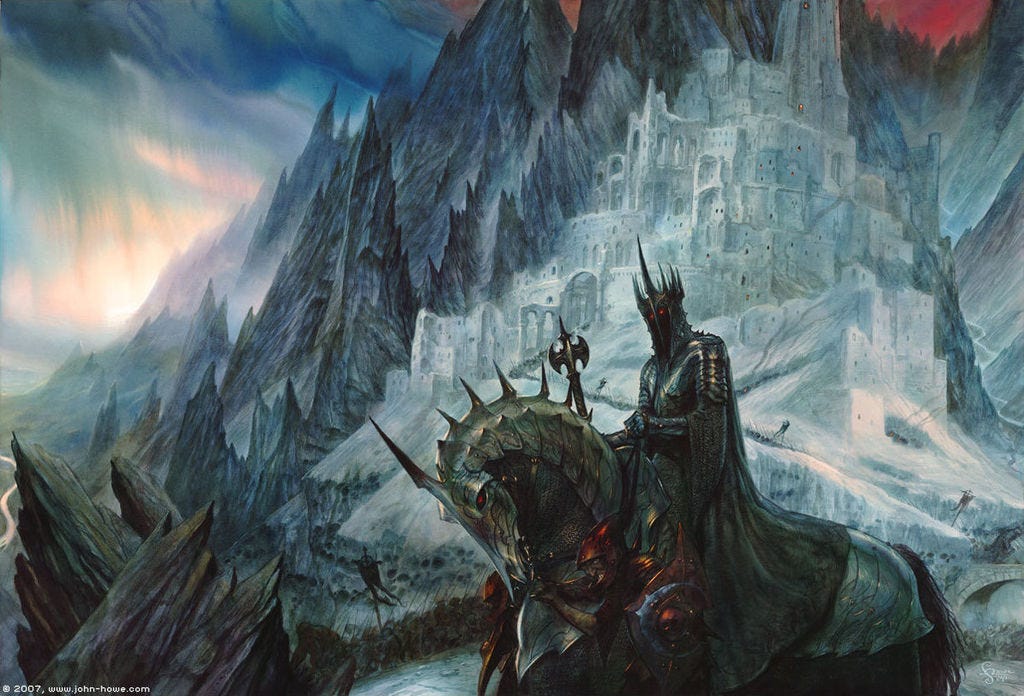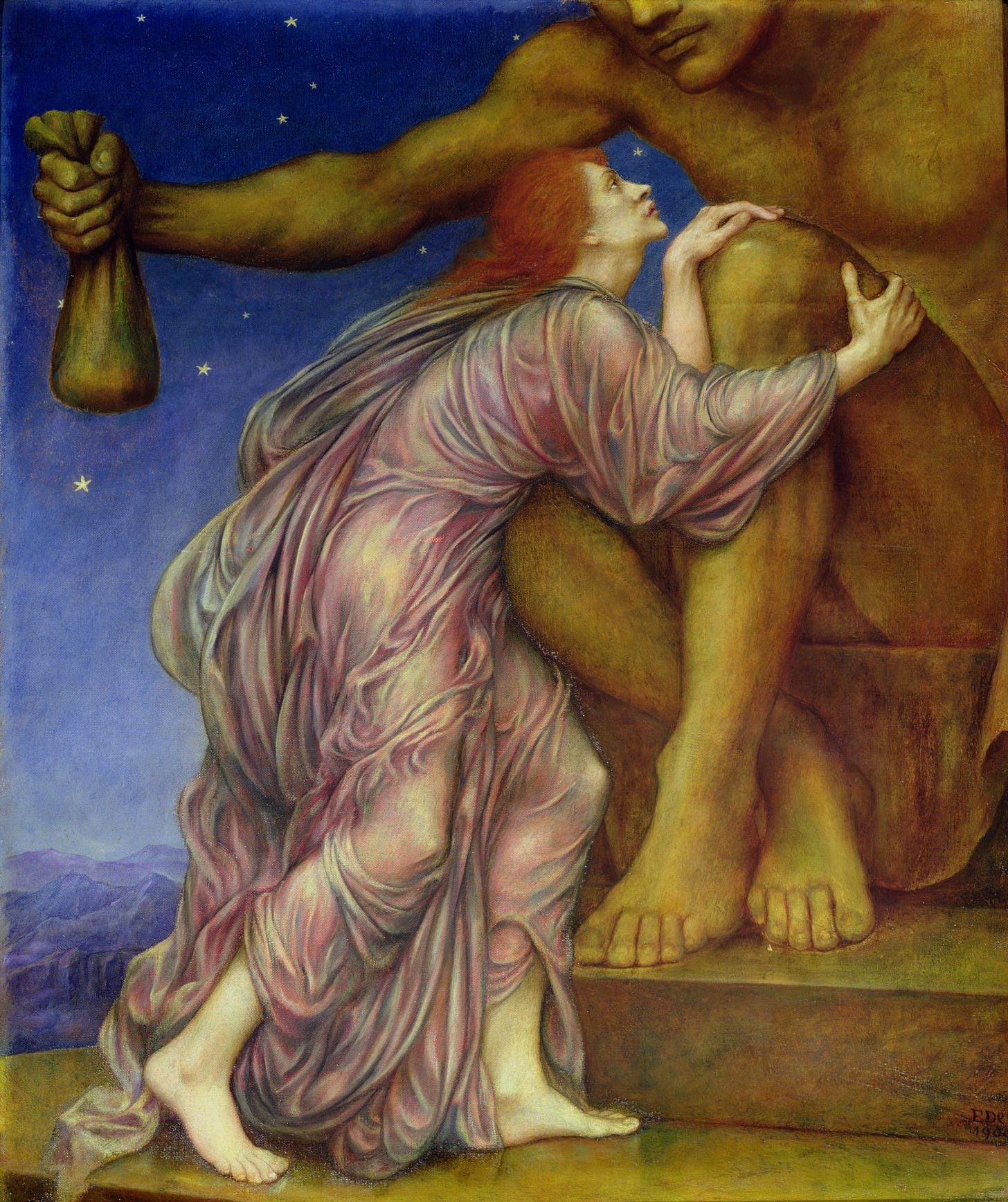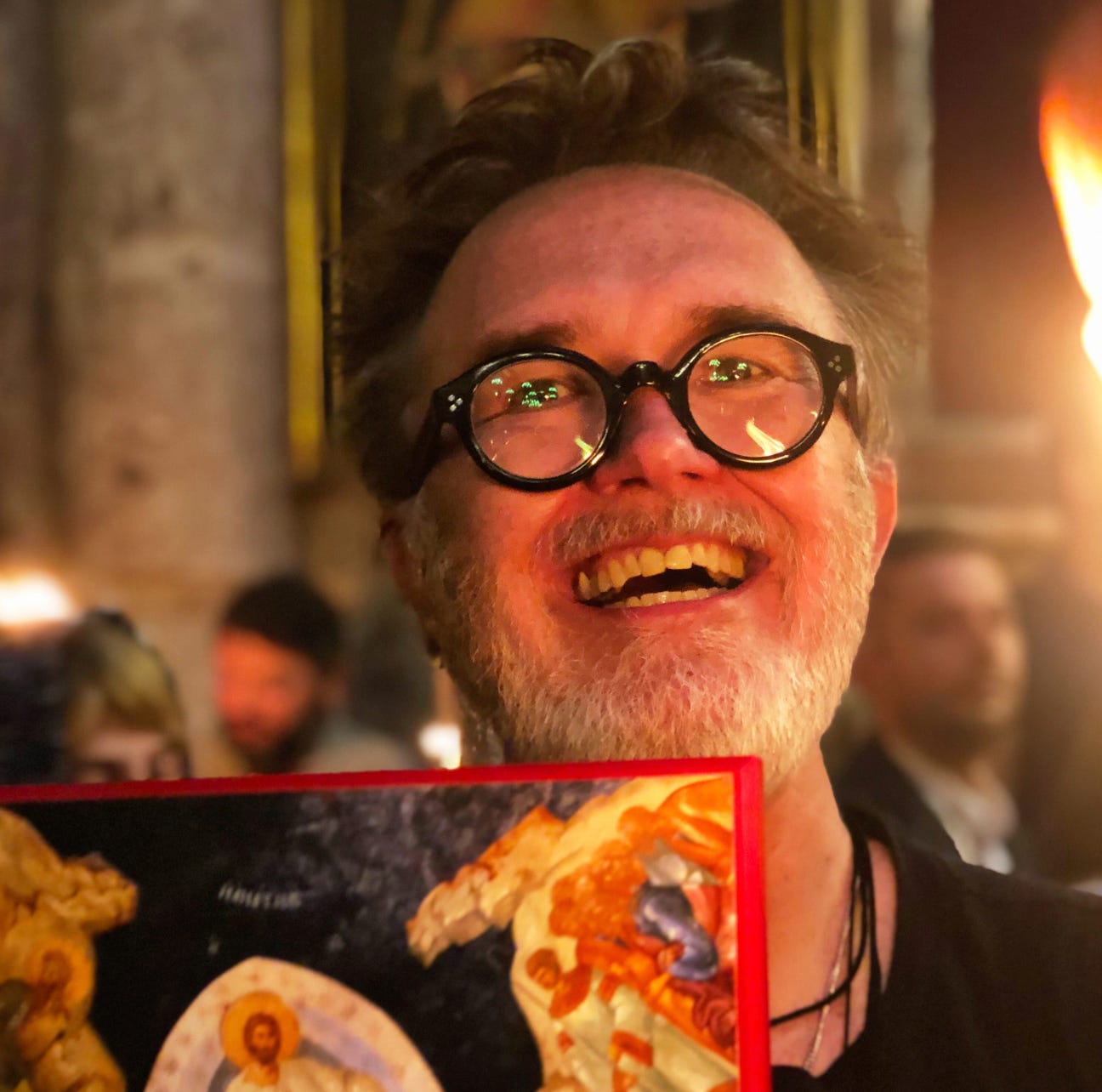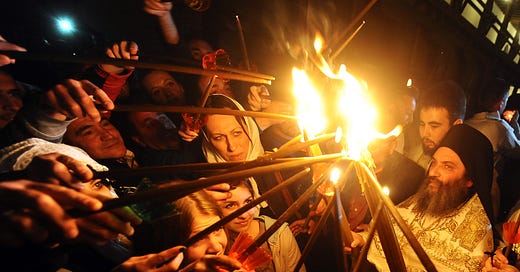Rod Dreher Has a “Weird” Solution for the Disenchanted West
Orthodoxy and Enchantment are having a moment
When
left The American Conservative, Vanity Fair ran a piece making the claim (which Dreher disputed) that his departure was due to his blog getting a little “too weird.” With JD Vance’s elevation to the Republican ticket, Dreher is now getting implicated in Vance’s “weirdness” as well. And to top it all off, Dreher now says that in his new book, Living in Wonder, he outs himself as “a complete Christian weirdo.”To be weird is to break from the mainstream, the typical, and thus its definition encompasses everything from the merely unusual to the supernatural. Dreher speaks to the full spectrum of weirdness. He’s been called an alarmist for warning that mass migration is a threat to Western culture, that the trans movement is Satanic, and that Christians in the West are under attack, however, those once-fringe views are increasingly mainstream. To many, he now seems less hysterical and more prophetic.
“Come and See”
Dreher has a knack for naming and contextualizing trends that the public may sense but not fully see. With The Benedict Option and Live Not by Lies, he delineated the nascent soft totalitarianism of the post-Christian West, and now he’s concluding this trilogy by speaking to what he tells me is “the heart of the matter, which is the visceral experience of the living God.” In short, he’s making the case for “re-enchantment,” specifically via the “authentic, time-tested mysticism” of Eastern Orthodoxy.
For Dreher, re-enchantment is about rejecting the nominalism and materialism of modernity and instead recovering the ancient Christian understanding of reality, one where God is preeminent over the powers and principalities, everywhere present, and filling all things. And while “enchantment” is in vogue right now, Dreher is trying to move beyond philosophical, academic debate to make an accessible case for Christian re-enchantment through story rather than syllogism, a right-brained appeal for a right-brained way of being.
While Dreher is not an Orthodox apologist, he does believe that Orthodoxy has something special to offer the disenchanted West. And he’s not alone. Though small in absolute numbers, Orthodoxy is seeing a relative surge in convert interest and cultural influence. Converts like
and Jonathan Pageau and Orthodox-adjacent public intellectuals like Jordan Peterson, John Vervaeke, and Iain McGilchrist are emerging as some of our sharpest social critics. Dreher sees Orthodoxy’s appeal at a personal level as well—he is regularly contacted by young people from Evangelical or Catholic backgrounds who say they are “dying of spiritual thirst in their churches and want to know more about Orthodoxy.”But as any Orthodox seeker soon finds out, the most common advice is “come and see.” Dreher told me he used to view that answer as a cop-out, but after eighteen years in Orthodoxy, he now understands that “Orthodoxy is more of an experience than a set of propositions.” You cannot just read your way into it.
With that in mind, I reached out to Dreher and a few other notable converts, hoping to get more of the human angle on why Eastern Orthodoxy—a Church famous for its lack of change—has suddenly become the hot new thing.
Contrarian Spirituality
Living in Wonder opens with the story of Nino, “a devout Christian lawyer” whose demonic oppression began back in 2009 when he saw a UFO hovering over a field near his house. Dreher goes on to detail how UFOs are actually demonic beings, AI is a “kind of high-tech Ouija board,” and finally, how Google’s LaMDA model was dedicated to the Egyptian deity Thoth. It is at this point, on page 138, that he acknowledges:
We are sailing in deep waters here. It’s not hard to imagine that readers who have followed me up to now will conclude that this is where the story I tell of modern mysticism shipwrecks itself on the shoals of crackpottery.
In reality, the litmus test comes with the UFO story on page one. Dreher is offering a contrarian story of the world, and his ideal audience is a spiritual seeker who’s skeptical of the received wisdom—skeptical of the experts, the pat answers of Sunday school, the gnawing nihilism of modern life. There is a reactionary appeal to enchantment.
It’s no coincidence that Orthodox content on giants, demons, and symbolic interpretations of the world are hugely popular. People are looking for answers outside of the secular materialism, bourgeois moralism, and standard wisdom they were given in the West. Naturally, some look East to the mystical spirituality of Orthodoxy. Others reject their Christian heritage entirely and pursue what Tara Isabella Burton calls the “de facto religion of millennial progressives”—astrology, psychedelics, and the occult.
Spiritual Stimulation
To Dreher, the dearth of exorcists in America, specifically among the Orthodox, is a failure of the Church to treat the demonic threat with due caution. One young man he interviewed tried to explain how, as Christianity has receded, the occult has gained so much ground in modern culture:
The church is a little like the Kingdom of Gondor. There were watchtowers on the borders of Mordor. We got sloppy. People slept. Evil things crept back. And then suddenly, one night, they came and took the watchtower Minas Ithil and turned it into Minas Morgul.

But if Mordor is advancing, why is Orthodoxy an appealing refuge?
, an Orthodox nun and author of You Are Mine, offers some insight. Raised Pentecostal, she cast off what she viewed as the patriarchal and repressive Christianity of her childhood to pursue enlightenment—through feminism, Buddhism, and psychedelics. She eventually found her way to Orthodoxy, but in hindsight, her wayward period feels almost inevitable.The Christianity of her youth didn’t seem to offer the holiness that it promised. What’s more, as a socially-concerned millennial, she saw in activism and spirit work a way to extend her power, to achieve her goals, and to access potent spirituality immediately and without self-discipline. She explained that we hunger to do good, to fill a void only God can, but absent prior purification, we will do harm rather than good, and absent asceticism, we will seek out psychedelics and other supernatural experiences with sufficient power to override our spiritual numbness.
But as all addicts know (and Sr. Anastasia found out), thrill-seeking just leads to an even deeper numbness. The spiritual hedonism of modern life—where our minds are filled with thoughts and our senses are deadened through overstimulation—requires the sobering asceticism of Orthodoxy. Only through miraculous interventions and then the disciplines of the Church was she able to appreciate the comparative “subtlety” of Christ’s invitation.
It’s Not About You
Frederica Mathewes-Green joined the Orthodox Church back in 1993 for the same reasons many converts join today. Her mainline church was teaching heresy, and she felt spiritually stagnant. She told me a story of visiting an Episcopal abbess in hopes of finding a spiritual mother. The abbess suggested they just be friends instead. But Frederica persisted and asked for counsel in her struggle with the sin of pride. The abbess replied, “But you have so much to be proud of!”
To Mathewes-Green, the consumerism of American worship is flattering to the chooser, but she tells me Joni Mitchell had it right: there’s a kind of “crazy you get from too much choice.” Orthodoxy shifts the focus from being the customer to blending in and accepting the wisdom of the Church: “You still don’t understand why we’re fasting? Never mind. Just do it. We’re all fasting now.”
A common refrain among Orthodox converts is a sense of purification. For Frederica Mathewes-Green, it’s a reframing of the Christian life from a customer-first, intellectual exercise to a time-tested Way, a process oriented toward unity with Christ. For Sister Anastasia, it’s a detox from the hyper-stimulation of the world to hear the still, small voice. For
(née Michael Warren Davis), an Orthodox convert who was previously an outspoken Catholic journalist, the process of conversion “felt like dying.”No Man Can Serve Two Masters
By joining the Orthodox Church, he “destroyed” his career and professional network that was built on his Catholic identity. He told me that some days he would just stare into the void: “I was losing my grip on everything that I thought I understood, including God.” He began to lose interest in secular and ecclesial politics and came to see churches engaged in the culture war—either as a force arrayed against wokeism or a force for advancing social justice—as serving not God but Mammon.

Despite the hysteria around Putin-bros or those converting for unsavory means, Davis thinks, in reality, Orthodoxy will typically challenge, rather than confirm, your biases. In his view, whether you come as a “flea-bitten reactionary” or a “raving modernist,” the Church will cure you of those categories because ultimately, they’re worldly concerns, and the first step on St. John Climacus’s Ladder of Divine Ascent is renunciation of the world, of Mammon.
Dreher expressed something similar that’s true in America (if not Russia): “As an Orthodox, it’s such a relief to be embedded in a more stable tradition, where you don’t have to feel like church life is an extension of the culture war. I’m Orthodox, but I’m not angry about it, you know?” Davis put it slightly differently. It’s not just about the distraction of the culture wars, it’s about a unique identity as Christians independent of politics.
He says, “Protestantism and Catholicism are both finding themselves in the desert for the first time in many hundreds, if not thousands of years.” Orthodox Christians, because of Islamic persecution and the Soviet Union, have had to discover what it means to be Orthodox without the Byzantine Empire, without Holy Russia. To him, the key question is how can Christians “be strong in our faith and courageous in the face of persecution, while not reveling in a kind of simplistic, childish idea of being counter cultural or against the norm, or, you know, different or edgy, based, red-pilled…Those are things that the Orthodox have had to work out, that Westerners are now having to work out, and whether one becomes Orthodox or not, absolutely you should look to the East for guidance on that.”
Where Do We Go From Here
Early in the book as Dreher is introducing re-enchantment, he jokes, “Relax, Protestants: It’s probably overstated to say that a contemporary Christian must join a sacramental confession or they will never experience re-enchantment.” But just the fact that he must make this disclaimer gives an idea of how this book may ruffle feathers.
In the end, Dreher agrees with the twentieth century Jesuit theologian Karl Rahner, who said the Christian of the future will be a mystic or he won’t be anything at all. Dreher elaborated for me: “Rahner meant that tomorrow’s Christian would have to make the mysterious encounter with God at the center of his faith life—this, as distinct from intellectualism or moralism.”
Since his conversion in 2006, Dreher has become more mystical and less argumentative about spirituality, and perhaps his willingness now to talk about the miraculous in his own life will open the floodgates. For her part, Frederica Mathewes-Green told me she’s just going to start talking about miracles: “I don’t really care if people think I’m a nut. I'll just start saying, you know, this happened and then that happened, and I'll just tell the stories.”
The Christian ascetic tradition has a term for saints who intentionally flout conventions and endure worldly scorn for the sake of the cross: fools for Christ. If you believe, like Dreher, that the post-Christian “common culture has gone morally insane,” then being labeled a “fool,” a “weirdo,” or a “nut” may be more a badge of honor than shame.
Is Dreher a saint, a fool for Christ? Perhaps not. Maybe he’s just a “weirdo” for Christ. God bless him for it all the same.







Thanks for sharing these thoughts so clearly - all roads lead to Dreher. What I admire in the weirdness and in RD’s output is that it is not overtly denominational. I am stuck in the RC Church but see the future, optimistically, as one where we have more in common than otherwise, need to stick together and learn one from one another. The RC Church needs to rediscover its own mystic traditions and discard the trappings of its history. We are entering a new era of social and cultural upheaval, which will be challenging for Christians but will also bring us closer to Christ, maybe even making us better Christians.
oh, this Episcopal priest just felt this to my *bones*. thank you ❤️